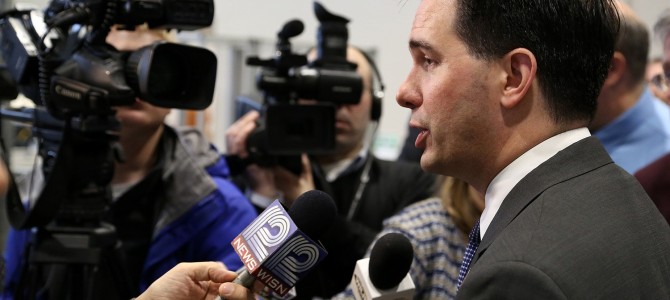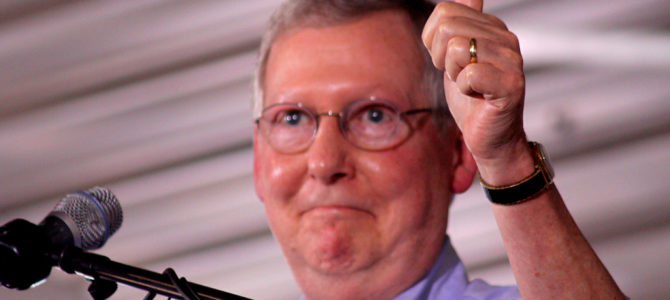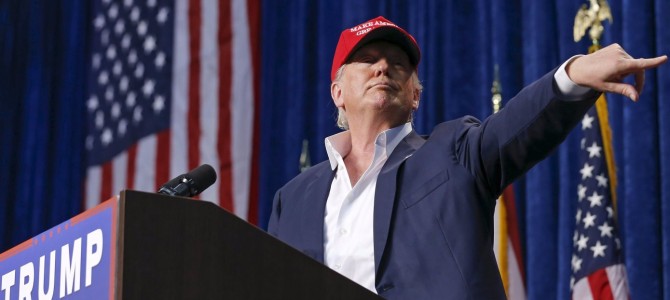Scott Walker is feeling the heat of being the surprise frontrunner this early in the 2016 cycle, and he is feeling it in the form of a litany of gotcha questions from the press corp: “Walker was also asked by The Washington Post whether the president is a Christian and answered “I don’t know” to that as well. “I’ve never asked him that,” the governor said. “You’ve asked me to make statements about people that I haven’t had a conversation with about that. How [could] I say if I know either of you are a Christian?” These answers and others like them have led Dana Milbank to pronounce Walker a coward unfit for the presidency. This headline becomes more amusing when you imagine how Dana Milbank would react to someone yelling “mouse!” in the newsroom.
There is an important distinction to be made here between the experience Walker went through over the past few years and Wisconsin and the experience he’s likely to have on the national level as it relates to the media. One would assume that a politician in a major state with a significant media presence and an active political opposition would be largely “vetted” after three competitive elections. And largely, they are. But there’s a braggadocio about national media types, insistent that candidates who come up here have never experienced anything like the pressure cooker before – that the national media’s combs are more fine-toothed, their microscopes more intense. This is the show, not Double A.
National journalists cultivate a reputation for digging deeper – it takes national reporters to find out about the real story about that racist graffiti at the ranch and things of that nature, after all – but they display a total lack of shame when it comes to running interference for their political allies, or asking questions along the lines that national opposition researchers peddle about the state-level candidates. This results in out-of-left-field questions that are sometimes probing, but more often times what your average Midwesterner would consider just plain rude.
It’s this type of activity that Scott Walker may not be fully prepared for – not because the opposition he faced in Wisconsin wasn’t aggressive or antagonistic, far from it – but because it a battle that he didn’t seek out, but one that found him instead. Brandon Finnigan outlines how the Wisconsin left chose to pursue the recall fight, with county-by-county analysis which illustrates how Walker united the right in response:
“The attempt to boot Walker by Wisconsin progressives and labor activists accomplished a rare feat: absolute party unity. But instead of unifying Democrats enough to unseat him, it created a brief moment where libertarian, establishment, Tea Party, and traditional conservative members of the Republican Party united to defend him… The Democrats spent millions of dollars and thousands of hours digging, scooping, ad-cutting, and hammering. They threw the kitchen sink at the guy in 2012, threw their neighbor’s sink at him in 2014, and now nobody on the block will let them inside to pee… Had the Democrats not targeted Walker with a recall, that massive fundraiser network, the national profile, the party unity, and his highly developed get-out-the-vote team almost certainly wouldn’t exist. He may have still won re-election, but he would be just another Midwestern Republican governor who enacted reforms and faced push-back, not the conservative folk hero of a party longing for a win.”
The Rick Perry 2012 experience is instructive here. So long as a conservative governor is a dark horse candidate, he will receive far less of this storm from the hategoat section of the media. But once he jumps in, a swift rise will be accompanied by a flurry of attempts to crack the new guy. Surviving this storm is often not about vetting at all, because the prior elections have likely put the skeletons out there. It’s actually about testing how capable you are at thinking on your feet, avoiding predictable traps, and turning the media’s assault back on itself.
The omnipresent media makes this a necessary skill to surviving in modern politics, as necessary as hitting a curveball. You can swing and miss, or keep stepping out of the batter’s box – but to play at this level, you need to take questions like that out of the park.









